From the food and drinking culture to the drastically different way of making friends, Norway's favourite French writer tells us all about her experiences of being French in Norway.
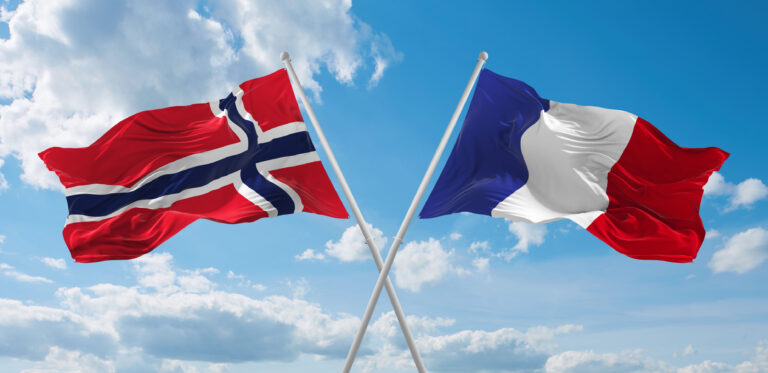
Lorelou Desjardins is the author of the blog and book, A Frog in the Fjord: One Year in Norway. The book is available in English, Norwegian and French. Buy a signed copy here directly from the author or a regular copy on Amazon.com. Lorelou was also a two-time guest on our podcast, the Life in Norway Show. If you enjoy this post, listen to this episode about her first year in Norway.
Oulala, Hallo Hallo, Baguette.
Paris is a two hour flight away from Oslo, yet there seems to be more than the North Sea between France and Norway. Sure, France and Norway are both Western European countries, with pieces of a common history, and seen from countries outside of Europe they are still pretty similar.
But from my experience, there is in an ocean of differences and misunderstandings between the French and the Norwegians.
How is it to be French in Norway? What are the greatest cultural shocks? I am French, am born in Paris and grew up in Marseille, and I have lived in Norway for almost 14 years. Here are the biggest differences I've spotted.
The food culture
It's safe to say French people aren't the only ones who feel the cultural difference when it comes to food. Truth be told, anyone from Mexico to India is usually pretty shocked to find out what Norwegians eat every day. Spoiler alert: lots of bread.
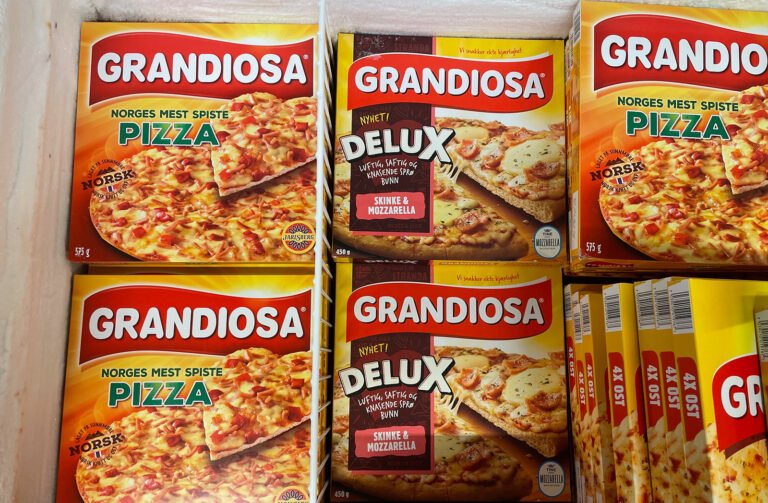
In France we eat two warm meals per day, at lunch and dinner. Norwegians eat a lot of cold meals, with little variation from a French perspective. We’d have warm meals with rice, pasta, different kinds of vegetables, a sauce, a salad etc.
But Norwegians eat up to four meals a day made of bread. Think about it: a breakfast made of bread and cheese/other pålegg. Lunch with bread and more savoury pålegg. Sometimes a warm dinner but not always, and “kveldsmat” made of…bread and pålegg of course!
And sure, French people eat bread too, but the bread for us is not an actual meal. It’s to have cheese on after you’ve eaten your actual lunch, not a staple food to survive the winter.
Another shock is the amount of processed food Norwegians eat on a daily basis. I've heard Norwegians tell me they don't have time to cook, which is the reason they eat so much food coming from bags (Toro soups for example), from cardboard boxes (Grandiosa frozen pizza) or meatballs from a plastic box. They even give that food to kids.
Of course another cultural shock is the time of the day Norwegians eat lunch and dinner. Lunch can be as early as 11am in offices. Dinner can be as early as 3pm, or 4-5pm when they leave work. That is not even apéritif time in France.
The drinking culture
French people drink alcohol, no doubt. Norwegians do too, and you could then think this brings us together. It doesn't, because our drinking cultures are different.

What is the difference? Simple. In Norway, socialising happens around alcohol whereas in France socialising happens around food. Sure, alcohol is there too, but the main focus is food. We can spend hours at a dinner table chatting, eating and drinking.
At Norwegian parties, the food is what gets least focus, but when people start drinking, that is when the party starts. Unless it's Christmas Eve, Norwegians don't really see the point of spending more than 30 minutes at a dinner table. And then those are their closest family members.
Why would they put themselves through such a long dinner with sober “friends”? So socialising happens usually when drunk.
Due to all this, a very strange thing used to happen to me. I was invited to a party at 7pm or even 6pm and expected food to be served. In addition I was expected to bring my own alcohol.
Those years were tough but now I know: if invited anytime after 5pm I am expected to have had dinner, and of course I need to bring my own drinks.
Socialising
The way to make friends in Norway and in France is very different. In France I'd say it is less formal, less organised, and surprisingly more cosy–or koselig as Norwegians like to call everything and anything.

How do you make friends in Norway when socialising happens around alcohol rather than food? You drink. Norwegians will loosen up when they are drunk, and they expect you to do the same. But are those koselig evenings? It depends if you know the people from before.
The issue here is that those Norwegian people you meet when drunk aren't necessarily people who will become your best friends, unless you know them from some other context such as university or an activity of some sort.
Those you just meet when drunk might not even say hello the next day when meeting you in the street. However, if you meet people regularly in activities or uni or even at work, and then get drunk together for example at a julebord, that will strengthen the bond between you.
Another difference is that Norwegians rarely invite people to their house. After meeting new friends, the French will quickly invite them for dinner, coffee, a birthday or anything else. French people will easily invite you into their home even though they might not know you that much.
In Norway being invited into someone's home is almost mission impossible. The only way to get in someone's home for sure is to buy something from them on Finn.no. Even that's not entirely true, since they can also leave the things you bought at the door. And now with Vipps you don't even need to meet them in person! How practical 🙂
Being arrogant
Another huge difference is how socially unacceptable it is in Norway to be arrogant vs. in France. In Norway, social laws of Janteloven make sure everyone stays in their place.
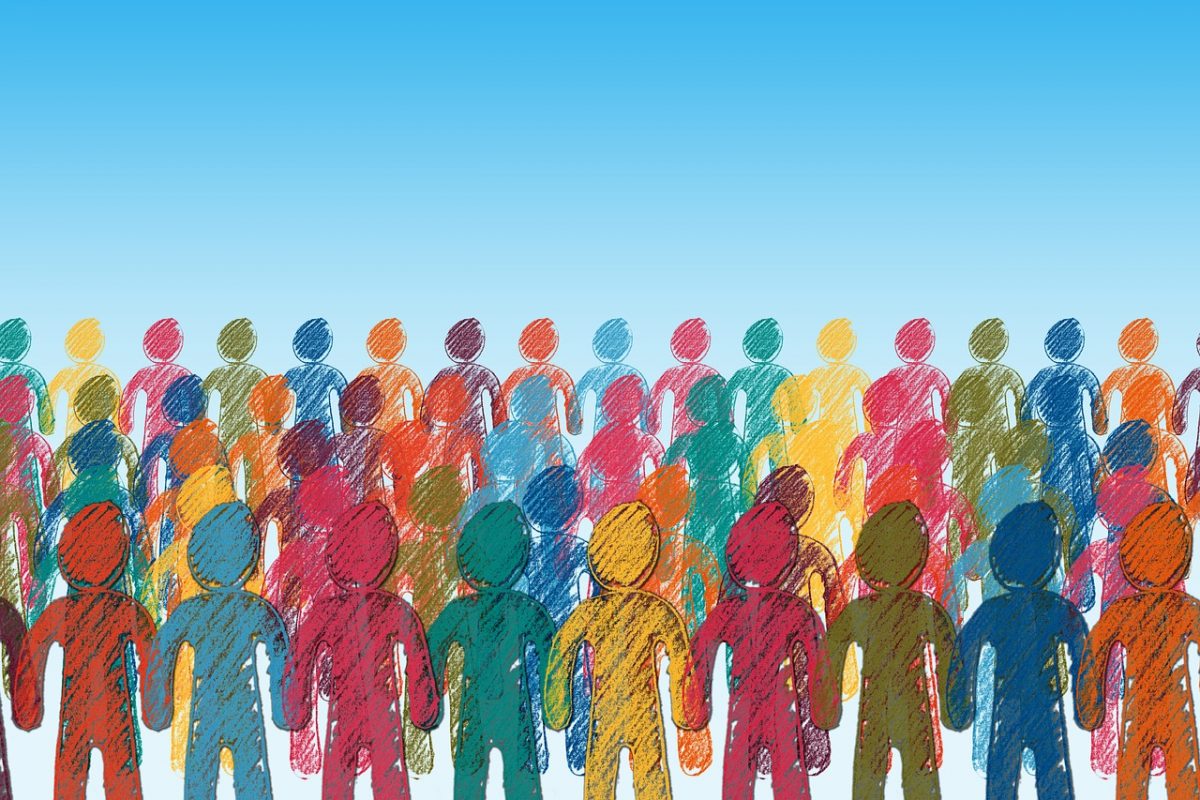
In Norway you cannot just say out loud how smart you think you are, how much money you have, and which elite schools you've been to to impress the crowd.
In France on the other hand, the national sport is to subtly (or not) show you superiority with all the knowledge you have, the great schools you've been to and the impressive CV you've built that makes you better than everyone else.
Bragging in Norway will get you bad vibes from the locals, even if everything you say is true. Just observe the Ingebrigtsen brothers when they win a race. They don't brag and say they are the best, they say “I could have not managed without my team, my wife, my trainer etc. It was so hard to train in the winter, I am so lucky to have won”.
But beware, although Norwegians don't brag openly, they still do it in other ways. It is just much less visible than when French people do it. It is just that if you do it the French way it's not going to go too well for you socially or at work.
The flat structure
Hierarchy is pretty important in France. This is something you learn as a young child. Your parents and teachers are above you and on top of the hierarchy of your life as a child. Then come other adults around, even those you don't know.
Parents and teachers, who are above all, decide what you wear, what you say, where you sleep and what you are allowed and not allowed to do.
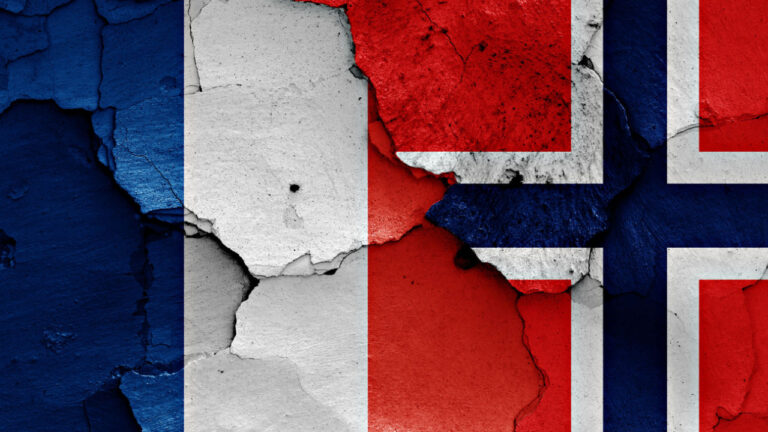
When at school this hierarchy continues, as even in high school pupils use the “vous” of politeness for teachers, we don't even know their first name and we call them “madame” and “monsieur” (mrs. and sir). In Norway, you can challenge adults, your parents and your teachers alike. This is very surprising for a French person.
When I was on Lindmo with Jonas Gahr Støre, he said that the biggest shock for him when he went to study in France was that when he asked a question to the professor and said “I'm sorry there is something I don't understand”, the professor said “No, there are many many things you don't understand”.
Arrogance AND Hierarchy in the same answer. Yep, French people in a nutshell.
In Norway children are encouraged to raise their hand in class, challenge what the teachers say, and think by themselves. Later in life, at work, they expect a flat structure between them and their leaders with inclusive processes where compromise is important.
Gender equality
Gender equality is also a big difference, from a long paternity and maternity leave to what kind of “jokes” are acceptable about women.
In France mothers get 2.5 months of maternity leave, and it’s not paid 100% of your salary. Fathers used to get 11 days and recently that was taken up to one month. In Norway, partners share roughly one year of parental leave.
Strangely enough, French employers talk about women on maternity leave as if it meant they were leaving for eternity and abandoning their job, when there are in fact gone very little time.
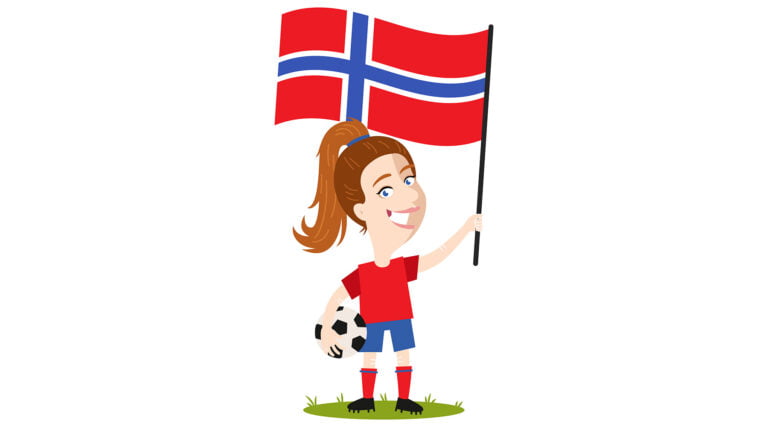
On the contrary in Norway, they just hire a replacement and know that the mum will be back at some point between 6 and 11 months. Many take unpaid leave too. But it does not stress any employer, it is just part of the deal when you hire anyone from the age of 25 to 45.
In France employers are still known for asking women whether they will have kids soon during interviews, and many women around 30 have a hard time finding a job.
But new generations are changing things around. It is more trendy for men to want to take care of their small children, and hopefully misogyny is not accepted to the same level now since #metoo.
Conflict
Last but not least, French and Norwegian people do not have the same way to manage conflict. In France I'd say conflict is part of life. People argue quite a bit, and raising your voice is seen as pretty normal.
In Norway, and this will also vary on the culture of the region you are located in, open conflict is seen as something to avoid at all cost. Conflicts are there, but hidden somehow, and people deal with them by either ignoring the person, crying, quitting (in a job), being on sick leave (also in a job) etc. Talking about things that aren't going so well openly is not an option.
Also, an interesting point I think is that what qualifies as a conflict is very different from one culture to another. In Norway conflict can be smelled as soon as someone raises their voice or shows they don't agree, whereas in France and many other countries that is just a Tuesday at the office.
Lorelou Desjardins is the author of the blog and book, A Frog in the Fjord: One Year in Norway. The book is available in English, Norwegian and French. Buy a signed copy here directly from the author or a regular copy on Amazon.com. Lorelou was also a two-time guest on our podcast, the Life in Norway Show. If you enjoy this post, listen to this episode about her first year in Norway.
Maybe you've lived in France or you are French yourself. Do you agree with my list? Did I forget anything?


I mean… It shows that she left France 14 years ago as things changed a lot since then and I really don’t recognize the country I live in in this article.
Plus she grew up in Marseilles, so like the worst part of France, I think this is also a reason why her views are so biased, it is true that over there (South-East like Marseilles, Nice, Cannes) people are quite shallow and arrogant but that’s absolutely not the case in the rest of the country.
Also, I am a young woman in a leading position at a tech compagny (giving context, not bragging) and I have not once face misogyny. It was true at some point in the past, but not so anymore.
Although it is true that we mark respect towards adults by speaking formal and calling them by there title, I have always challenged my teachers and never got punished for that, on the contrary.
On the socialising part, that’s the same, I met my closest friends and my fiancé on parties and we socialised around alcohol, not food. Afterwards, with my close friends, we did dinners, barbecues, etc. but that’s not how you meet people, that’s drunk at parties or at events like charity, sports, concerts, etc.
Same with conflict, there is a difference between debating ideas – which we do a lot – and conflict, which we really don’t do and is seen poorly – except in the southern part like Marseilles, hence the huge bias.
Overall I think that before writing another article on a culture it would be wise to have live there in the recent time (not a decade and a half ago) and in multiple parts of the said country (not just the capital and Marseilles, city with the most crimes and a really different culture that other French People really struggle to understand – there is reason reality TV is mostly Marseillese).
Sorry for the long comment but I had to give another more updated view.